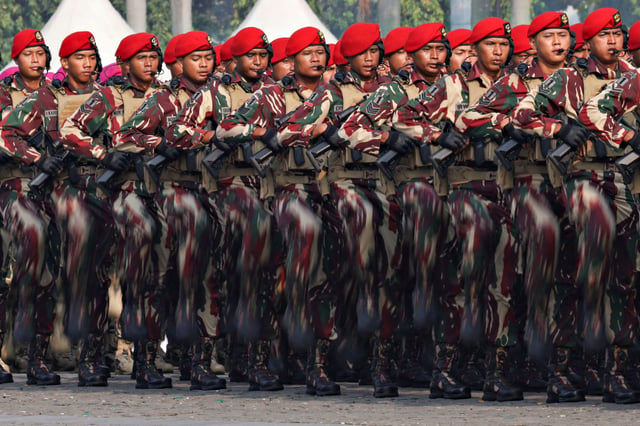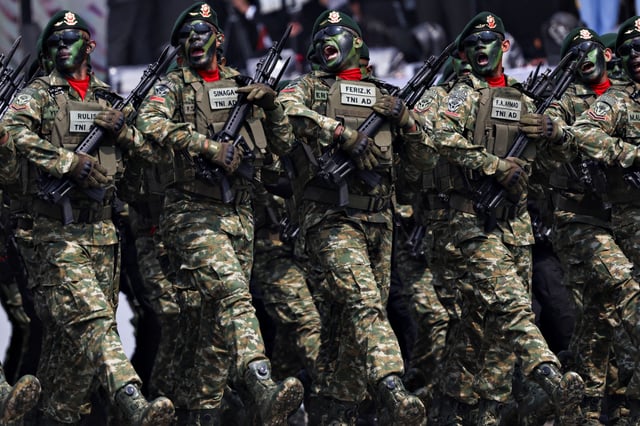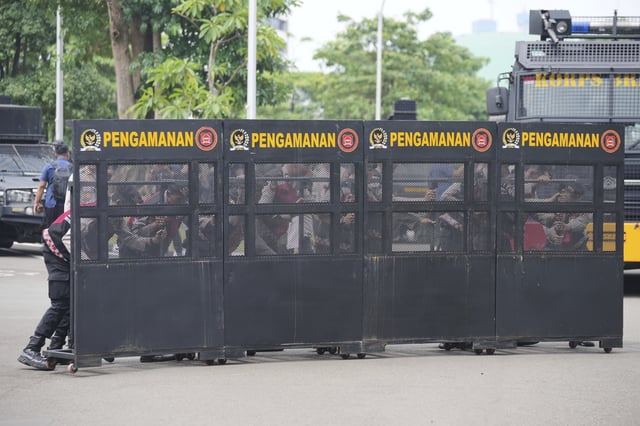Overview
- Indonesia's parliament unanimously approved amendments expanding the number of civilian roles military personnel can occupy from 10 to 14.
- The law requires officers to resign from active military service before assuming most civilian posts but extends the retirement age for military personnel.
- Critics, including civil society groups and activists, warn the changes could lead to abuses of power and a return to military dominance reminiscent of the Suharto era.
- The government defends the amendments as necessary to address evolving geopolitical and nonconventional security challenges.
- Protests by students and rights groups continue, with concerns over the rushed legislative process and limited public consultation fueling opposition.



